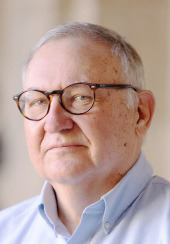There’s an old saying about government – “it’s not that ‘what is said isn’t so,’ it’s what is so isn’t said.”
So that means that someone – maybe a state auditor, maybe a whistleblower, but often a news reporter – needs to dig in and find out what is really happening with our tax dollars and state policies.
That’s why it was so disgusting to read recently about our “Secretary of War’s” crackdown on access by reporters to the Pentagon.
Pete Hegseth, a former Fox News weekend host, is the U.S. Secretary of Defense. And it’s his opinion reporting by a free press – a right guaranteed in the Bill of Rights – is somehow disruptive to his job.
(President Trump wants to change the title to Secretary of War for some reason, but he can’t do that without an act of Congress, so I’m sticking with the actual, legal title, which is “Secretary of Defense.”) So Hegseth wants reporters to sign what amounts to a loyalty oath, pledging they will refrain from reporting about things his agency – one of the largest and biggest spenders in the federal government – has not authorized to be revealed.
Reporters have long self-restrained from reporting on troop movements and ongoing military exercises that would endanger soldiers.
But sometimes, reporters find out “what is so” clashes with what’s been said and have to report something.
Has anyone ever heard of the Pentagon Papers? That 1967 document, long held in secret by the Pentagon, revealed our country’s military leaders and presidents had concluded for years that a war in Vietnam was unwinnable. Yet our leaders kept sending troops, spending money and telling us we could win until a costly war – in terms of lost lives and wasted expenditures – ended in 1975.
That was a document the Pentagon did not authorize for release. It took a whistleblower and reporters and editors with the New York Times in 1971 to tell us the truth.
Let’s be honest, reporters and editors aren’t very popular these days.
Trump labels them often as “enemies of the people” and denigrates reporters and calls them insulting names if they write things he doesn’t like. He’s also sued several news organizations over petty grievances.
Government officials, when they screw up, would rather not read about it on the front page of a paper or a website.
Hegseth, I gotta believe, wasn’t too happy when the media revealed details of a secret air strike were accidentally, and carelessly, shared with the editor of a national magazine.
But consider this – do you want government officials to hand pick what we know and shouldn’t know? You trust them to always tell you what’s going on, even when that’s bad news?
Would you have rather not heard what our governmental leaders really thought about the Vietnam War?
I’ve seen this over and over when covering Nebraska state government. And while I believe the vast majority of folks who work in government are honest and want to serve the public, there’s those who figure they can cut corners, enrich themselves, and make their agency look good.
All too often we get the response, “no comment,” or requests for comment are ignored altogether. It used to be when you called a state agency, even the governor’s office, there was a chance you could talk to the agency director, a top administrator, or the governor themselves. But now, nada. It’s most often “email a couple of questions and we’ll get back to you,” which results in half-answers and non-answers.
We need reporters, as well as inspector generals and auditors, to provide an essential double check on our government.
Please know, it’s not the job of a reporter to take down everything a governor or president says and accept that what they provided must be true. “Trust but verify” was Ronald Reagan’s famous warning. So that means fact checking what’s being said, and doing some background work.
We spend more than $900 billion on defense. That’s dollars you and I pay as taxes. We deserve to know, exactly, how our money is being spent, and that it’s not being spent on $300 toilet seats or billion-dollar warships or jets that don’t operate as intended.
Almost every reporter from a legitimate news outlet turned in their Pentagon press passes in response to the awful new rules proposed by Hegseth. And rightly so.
The last thing we need is some bureaucrat spoon-feeding us what he believes we should, and shouldn’t, know about how our dollars are being spent.
Paul Hammel has covered state government for decades. Prior to retirement, he was senior contributor with the Nebraska Examiner. He was previously with the Omaha World-Herald.

.jpg)








